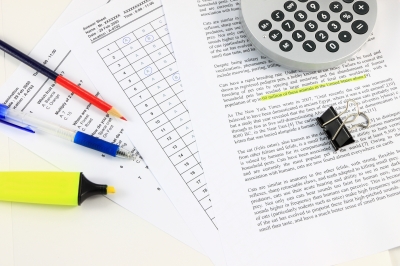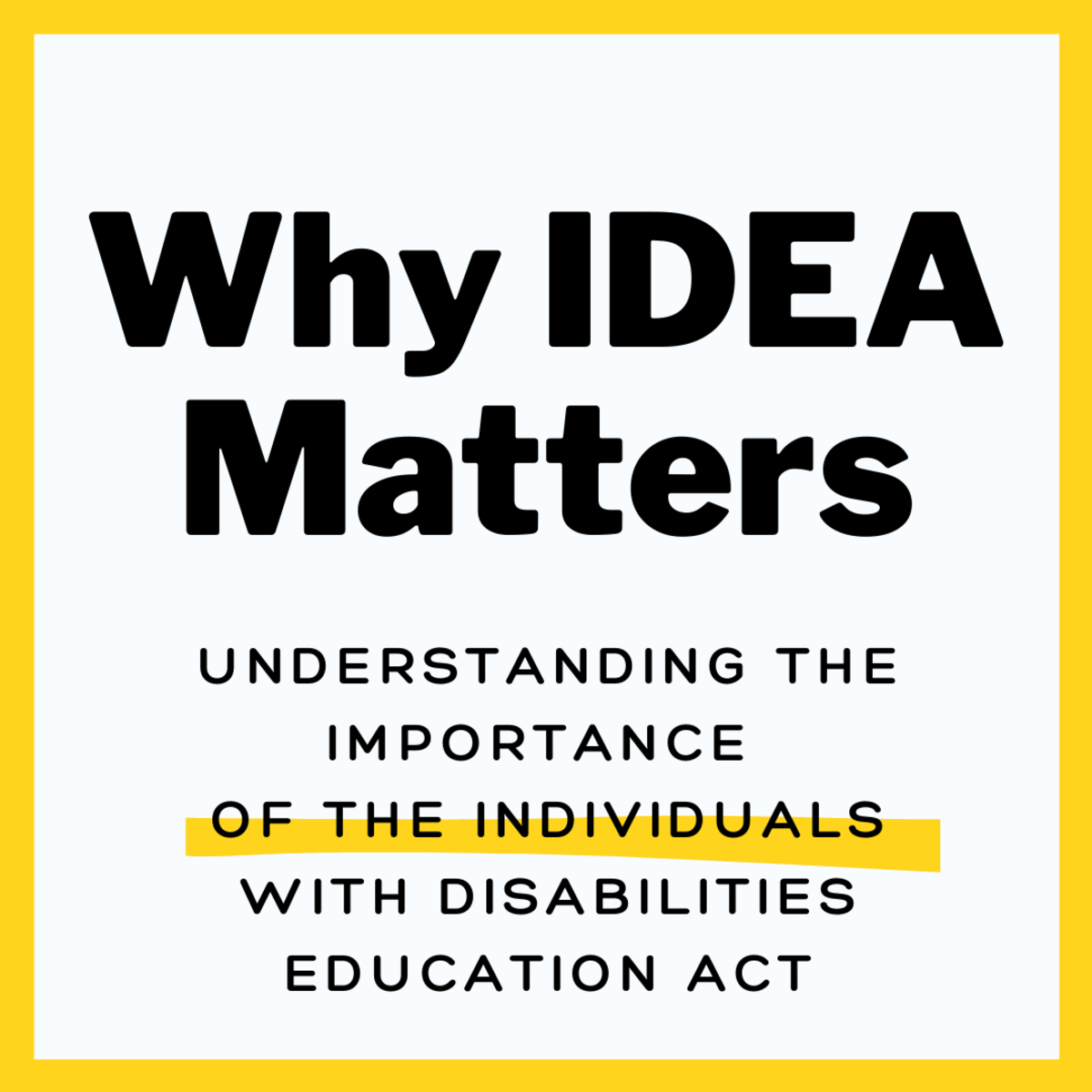How to Prepare for an IEP Meeting and What to Bring With You
Preparing for an IEP Meeting

Individualized Education Plan (IEP)
Whether this is your first or tenth IEP meeting for your child, you need to know how to prepare for the meeting and what to bring. I have two children with disabilities and have attended more than a dozen IEP meetings in the last three years. The good thing to know is that if you don't get it right the first time, you can schedule a special review meeting to make changes. To increase your chances of making the best decisions for your child, follow these tips.
What to Bring to an IEP Meeting
- paper and pen
- educational advocate
- spouse or friend for support
- medical history
- list of questions and concerns
- calendar
- a calm attitude
Special Education
If this is your first IEP meeting, then either you or the school has decided there might be a need for your child to receive special education. With your permission, the school will have performed a complete psycho-educational evaluation for your child, so the next step is to conduct an IEP meeting to determine special education eligibility and services.
Special education services have a broad scope and may include related services like speech, occupational, and physical therapies. It may also include accommodations such as untimed tests, special seating, reduced homework, or special instruction. Students may receive individualized instruction in the general education class, or be pulled out to learn in a smaller group. Some students may be placed in a self-contained class. Just as each child is different, there are many different types of special education accommodations and services. Writing an IEP plan to determine what will help your child is a very important job, and it is important for you to know that you are an equal partner in creating the plan.
Eligibility for Special Education
At the initial IEP meeting or at a reevaluation meeting, the team will be deciding if your child is eligible for special education services. You should familiarize yourself with the categories that students can qualify in your state. Some typical categories are autism, emotional disturbance, learning disability, deaf-blindness, orthopedic impairment, intellectual disability, traumatic brain injury, developmental delay, speech or language impairment, hearing impairment, and other health impaired (OHI). Your IEP team will examine how the disability affects your child's ability to access public education, and see if he requires extra or different types of services.
If a child has a diagnosed disability such as deafness or autism, the IEP team has an easier job of assigning the proper category. It becomes more difficult when the child has multiple disorders or has a disorder that may or may not fit into the OHI category. Examples of disorders that may fit into the OHI category are ADHD and anxiety disorders. The team must decide if the disorder affects the child's success at school. In these situations, proper documentation of the child's disorders are very important, as is the parent's input.
Members of the IEP Team
The following individuals are mandatory parts of the child's IEP team:
- parent
- teacher
- student (if appropriate)
- at least one regular education teacher
- at least one special education teacher
- one school representative
- one person who can interpret the evaluation reports
- any other individual with special knowledge of the child
IEP Advocate
If you have a child with multiple disorders and needs, or if your child has a "hidden" disorder, I highly recommend partnering with an educational advocate. A hidden disorder would be one such as ADHD or anxiety - one that is not obvious to the eye, and therefore often misinterpreted by others. You may also want to consider consulting an advocate if you have experienced resistance from the school in regards to helping your child.
Many cities have organizations that offer free services to children with disabilities. The advocate I used came to my house to observe my child and talk with me about options. Since he spends so much time in this field, he knows what types of services and accommodations are available and helpful for the different special needs of students. Our advocate also attended the IEP meeting with me to give support and advice. His assistance was invaluable.
IEP Questions

Gather Information Before the IEP Meeting
If you are attending an initial or reevaluation IEP meeting, then you need to have copies of any school evaluations that were performed. You need to get these documents at least a day before the meeting so that you will have a chance to review them. It is very common for public schools to present the papers to parents right before the meeting or during the meeting. This puts the parent at a disadvantage. If the school is unable to provide the documentation before the meeting, then the meeting needs to be rescheduled.
Once you have the evaluations, review them to make sure they are accurate. Twice, I have read reports that contained major errors, so I had to have them corrected. Besides not having accurate information for the IEP team to consider, you do not want false information in your child's school record.
It is very important that you make a list of any questions you have. I have attended IEP meetings that included ten participants, and it can get fast-paced and confusing. Be prepared by writing down all of your concerns. You can cross them off as they are addressed during the meeting. Do not be afraid to ask questions! This is your child and his education. The type of questions will vary depending on your child's needs, but some examples are:
- How much time will my child spend in the regular classroom setting?
- How will field trips be handled?
- How will medication be dispensed?
- How will my child be transported to school?
- What type of communication will I have with the special education teacher?
What to Bring to the IEP Meeting
Your child's school should have copies of all your child's records and evaluations, and your own private doctor's reports if you provided them. I would suggest keeping a folder or binder with all the documentation for your own records, though, and bringing them to the IEP meeting in case you need to refer to them. Items that you should bring to the IEP meeting are:
- Paper and pen
- Educational advocate
- Spouse or friend - Ideally, it is beneficial to have both parents attend the IEP meeting. If that is not possible, another relative or close friend can offer their support and perspective.
- Medical binder - Include all medical reports done by school or privately.
- List of questions - This is crucial so that you won't forget your concerns.
- Calendar or day-planner - There may be upcoming dates or deadlines to record.
- Calm attitude - Don't be nervous or intimidated. If you feel rushed, ask them to slow down or continue the meeting to another time.
After the IEP Meeting
Make sure that you are provided a copy of the signed IEP at the end of the meeting. You may want to keep the document in your medical reports binder or file it where you will have easy access.
When your child receives a report card, he will also receive an update on his IEP goals. If your child experiences any additional problems, or if what is in place on the IEP does not seem to be working, then contact your child's teacher and ask for a special review IEP meeting. It may be that your child's medical condition changes, and you feel that the IEP needs to be changed to address any new needs.








